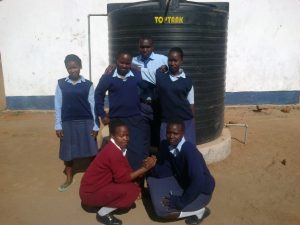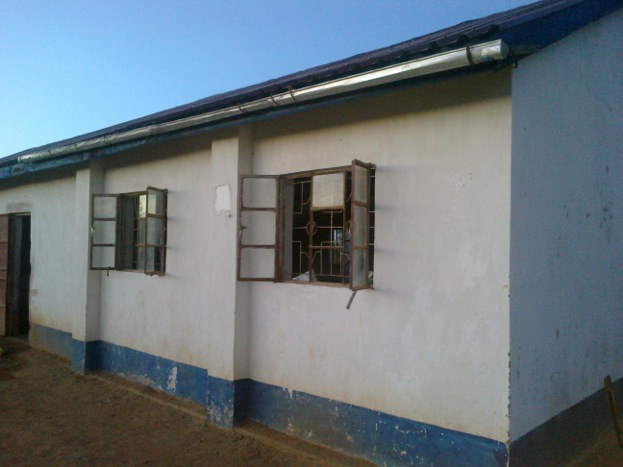 Location
Location
Kyanguli, Kibwezi District, Makueni County, Eastern Province, Kenya
Community Description
Kyanguli is a very small village, located approximately 16 km off the main highway between Nairobi and Mombasa. Once part of the large Tsavo game reserve, the area has seen a dramatic increase in population in the past decade. The increase in population has led to widespread deforestation, and exposed the once-fertile soil to erosion.
The area receives little rainfall, and, moving into the dry season, water is becoming scarce. In an area where subsistence farming is the most common form of income generation, every drop of water counts.
Kyanguli Secondary school is a new school in the area. Open less than 5 years, it has seen the population triple in recent years. With the influx of students, the demand for water has also risen.
 Water is brought from hand-dug wells in a riverbed, and is very dirty. The school has used piped water, brought from 2 km away, but a recent pipe burst shut off the water for a week, causing the school to go to its reserves.
Water is brought from hand-dug wells in a riverbed, and is very dirty. The school has used piped water, brought from 2 km away, but a recent pipe burst shut off the water for a week, causing the school to go to its reserves.
A small storage tank was built to store water when the county rations water in the area. However, the condition of the water tank is very poor, and recently some of the many lizards fell victim to the water, drowning and contaminating the reserves.
Peace Corps Volunteer Peter Hess recently completed Phase 1 of the Kyanguli Secondary School Rainwater Harvesting Project – Kenya. This provided for the purchase and installation of a 5,000 L water tank and connection to the water supply as a part of a comprehensive solution to provide for the water needs of the school.
Project Description
This project is to complete the rainwater harvesting system by installing gutters to capture the water that runs off of the Form 1 and 2 classrooms, and piping it to the newly installed tank adjacent to the classrooms.
 Water Charity funds will be used to purchase and transport 80 pieces of metal guttering to upgrade existing water catchment, miscellaneous parts for attaching the gutters, and payment of the laborers performing the installation.
Water Charity funds will be used to purchase and transport 80 pieces of metal guttering to upgrade existing water catchment, miscellaneous parts for attaching the gutters, and payment of the laborers performing the installation.
Remaining funds will be used to build a large wastewater catchment system, surrounding the taps which were installed in the initial Phase I project.
Funding will also be used to procure water treatment chemicals, to prevent the transmission of waterborne illnesses in the water storage system.
Excess water, as well as crops produced by proper irrigation, will be sold to the community, providing needed operating revenue of the school.
Project Impact
This project will provide a direct benefit for 150 students, as well as the teaching and school staff. An additional 500 people in the community will benefit from the availability of water and produce.
Peace Corps Volunteer Directing Project
Peter Hess
Comments
This project demonstrates the benefits that can be achieved through good planning and staged implementation. The school will be prepared for cutoffs in the piped water supply, and also obtain economic potential.
Dollar Amount of Project
$400.00
Donations Collected to Date
$400.00
Dollar Amount Needed
$0.00 – This project has been fully funded through the generosity of the G3 Foundation, of Costa Mesa, CA, USA.
Any contributions in excess of the Dollar Amount of Project will be allocated to other projects directed by this PCV and/or projects of other PCVs in Kenya.
This project has been finished. To read about the conclusion of the project, CLICK HERE.